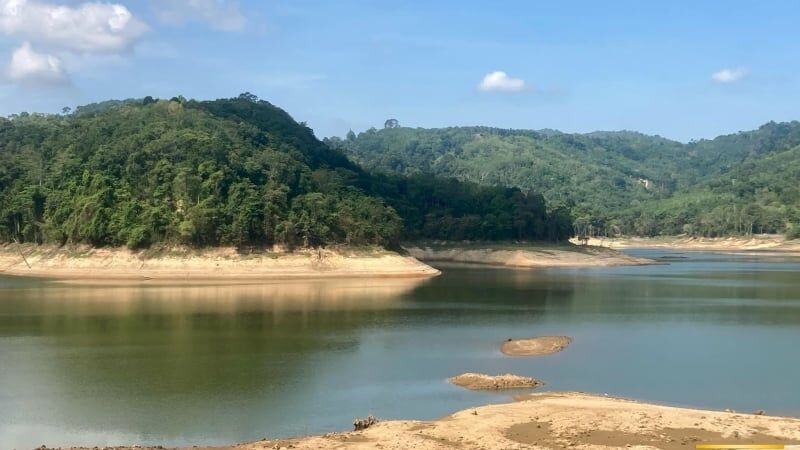Phuket’s reservoirs promise adequate water supply until rains

Phuket‘s three primary reservoirs are sufficiently water-filled to ensure the island’s inhabitants have enough water until the annual rains due next month, confirmed Krirksak Leenanon, the Chief of Phuket Irrigation Office.
Currently, Bang Wad Reservoir, located in Kathu, holds 2.12 million cubic metres of water, indicating it is 20% full. Meanwhile, Bang Neow Dum Reservoir, situated in Srisoonthorn, is 45% full with 3.57 million cubic metres of water. The Klong Kata Reservoir in Chalong is 32% full, having 1.32 million cubic metres of water. Krirksak confirmed these figures were up to date as of yesterday.
He noted that the water volume in Bang Wad Reservoir in Kathu this year is slightly lower than in previous years. However, it hasn’t reached a critical level and can continue to provide water to the population, including business owners, till the end of May.
Krirksak expressed some optimism, however.
“Assuming the rains arrive as anticipated in May, we should not encounter any issues.”
Krirksak also mentioned that they have identified several alternative water sources, originating from both the private sector and various water mines, reported The Phuket News.
Additionally, he revealed they have a plan to request aid from royal rainmakers if required. He concluded by stating that they would continue to execute their short-, medium-, and long-term strategies.
In related news, the Phi Phi Islands, a prominent tourist attraction in Krabi, are grappling with a severe shortage of freshwater. The local authorities are exploring potential solutions, with two options under consideration – a pipeline bringing water from the mainland or the production of freshwater from the sea, according to the Ao Nang Tambon Administration Organisation (OrBorTor).
Phankham Kittitorakul, President of Ao Nang OrBorTor, highlighted the recurring lack of tap water during the dry season. This period coincides with the tourist high season, exacerbating the situation over the past few years. To address this, Ao Nang OrBorTor has received funding to investigate these two possible solutions.
Latest Thailand News
Follow The Thaiger on Google News:


























